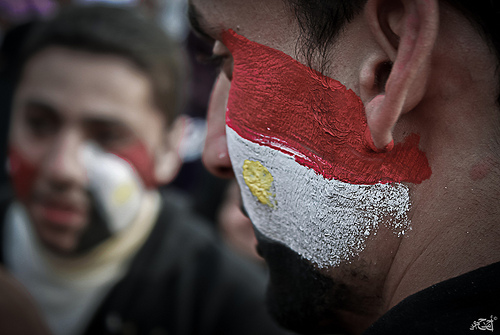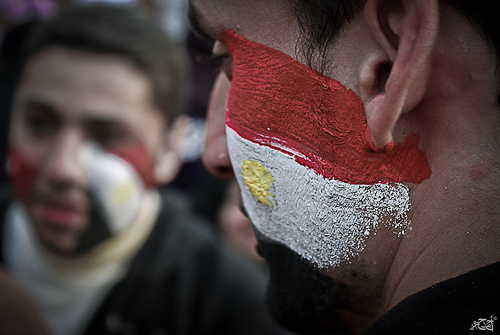Before moving to Egypt 10 years ago, I was unfamiliar with the world outside of Houston, Texas. When my dad, a geologist, told us we were moving to Cairo, I expected the camels and pyramids that popular Western culture had painted in my 11-year-old head. Yet, upon landing, things were distinctly different. I was expecting dust, just not everywhere. I expected people, just not sooo many. I expected to fit in, and like many TCKs, I didn’t.
Fast forward 5 years and I had become more comfortable wandering the streets of Cairo than anywhere in the United States. I loved exploring the Khan, visiting Road 9 and the sense of freedom to go where I pleased in the city. People were friendly, though often searching for a little extra cash from a blue-eyed boy such as myself. I was amazed that despite the poverty, people had a sense of dignity, and worked hard to maintain it. I felt privileged. I occasionally resented this fact as a TCK, and wished that I could fit in better.
The Egypt I grew up in was a vibrant place. The traditional minarets of Cairo were being overrun by skyscrapers. The country had begun to provide internet access, for which we waited patiently for hours to load the simplest of webpages. Yet at the same time, diametrically opposing this change were the things that were timeless, like the pyramids, which somehow remained the same in the middle of such chaos.
As a young boy, I understood little about politics, only overhearing bits and pieces that gradually came together. I understood that Hosni Mubarak had been in power for more than 20 years at the time, and I understood that corruption was present — yet I never encountered it, really, other than my parents remarking at the number of traffic tickets people got every year.
I left Egypt in 2004, a 16-year-old, off to Trinidad and Tobago because of my dad’s job. I had a funny feeling that it would be a long time before I returned, and prayed that the timelessness of Egypt would preserve it just the way I had left it, so one day I could return to live in the very same place as before. I wanted those wonderful days of my childhood to be mummified.
It ended up taking 6 years, but I was eventually able to make a short trip back to Cairo while studying abroad in Amman, Jordan. The Egypt I returned to was almost a copy of the one I had left. The airport attendant wanted money for providing paper towels to dry my hands, I had to haggle to get a cab and a room. The air was hot, even oven-like. Yet aside from a few new buildings and cars, it felt stagnant. The Egyptian Museum, filled with so many great antiquities, was the same hot, disorganized, crowded place as before. A staleness hung in the air. My close friends, now long gone, seemed to be the only piece missing. The infrastructure seemed in even more decay.
And so I left, feeling as though the mummification had gone too well. Perhaps it wasn’t good to wish for things to remain the same. After all, we have only one childhood, one which we can never truly revisit. The Egyptian people had taken notice, however, and the arrival of the internet and cell phones meant that the word could spread fast for change. The sleeping giant of Egypt was dreaming, at least, of a better tomorrow.
The noise from a neighbor disturbed his slumber. I watched the country’s awakening with a mixture of fear and awe. I worried about my friends and acquaintances who still remained there. I felt the excitement as I watched protesters storm across the 6th October bridge.
But as the days rolled by, it became clearer that Mubarak would not go, nor his government. I felt a sense of pride for being associated, in some small capacity, with Egypt, and placed an Egyptian flag on the bicycle I rode to school every day. I wore a Palestinian scarf, a symbol of resistance in the region. I know I have led a privileged life compared to many Egyptians, but I still feel like part of my heart will remain there with them. My identity is, in part, with them.
I spoke with my Jordanian host family about the situation, as they have extended family in Egypt — they sounded worried, as was I, when I heard the news of looting going on in Maadi, the area of Cairo where I grew up. I now follow the news intently, watching Al Jazeera and other news sources in the morning,as well as some of the posts on YouTube that have emerged in recent days.
My friend Mustafa, who took me around Cairo on my last visit, said that he was doing alright, hoping things got better. “Inshahallah,” he said. God-willing. I hesitated to ask whose side he was on, because in some ways, I suppose, I was afraid of the answer. Later, I regretted the decision.
I still remain unsure of how to approach the situation. Even though I identify myself partly as Egyptian, my pale complexion and my passport say that it is not my place to discuss the future of Egypt. That is for Egyptians to decide, and I do not want to feel as though I am intruding on their decision. All the great democracies of today emerged from domestic democratic movements. I believe that people must feel that democracy is their creation, not an imposition by a foreign power.
As the events play out, I am unsure where they will lead Egypt. One thing is certain, though — the mummified Egypt I have known for so many years is now gone. And that is certainly a good thing.


Thanks for sharing this. Enjoyed reading your perspective on this 🙂
LikeLike
Pingback: Twitter Trackbacks for Change Has Come: Watching Egypt as a Third Culture Kid | Denizen [denizenmag.com] on Topsy.com
I’ve never lived in Egypt but was an expat child in Jan 1984 during the Tunis Bread Riots. Seeing the news reports from Tunisia, Egypt, Jordan, and Yemen brought back memories of huddling in an inside corner with my parents and sister while our house’s windows were broken by rocks thrown by the rioters, hearing them smash in our car’s windows, trying to get to supplies the following day with my father while avoiding mobs, and then driving around for weeks with plastic taped over the car’s windows while we waited for shipments to arrive from Europe.
It’s sad to me that change so often can only happen through such violent uprisings in those parts of the world.
LikeLike
As a TCK who grew up in another country that’s on the brink of who-knows-what (as it has been for decades), I resonate with these feelings. Thanks for sharing!
LikeLike
Hi, Scott! I’m wondering if I can repost your article on Watching Egypt as at TCK on my website. I’d give you credit and probably add a few of my own comments, but the bulk of the post would be yours. Let me know . . .
Thanks!
Sheryl
LikeLike
Hey Scott,
I really liked how you told your story… your descriptions make me feel as if I were there.
Like your poems on TCKid, you have this incredible ability to transport feelings into words (if that makes any sense).
Congratulations! Very well written!
(and I’m not just saying that cause I’m your girlfriend! :P)
LikeLike
thanks for sharing:)
in my case, last year when the Polish(lived there 10yrs ago) president died from a plane crash, i felt exactly as if it happend to my own pres… the funny thing is i was more shocked than when my country’s previous president committed suicide. strange.
LikeLike
I grew up in Afghanistan and I feel the exact same thing about caring far to much about that place than any pale red headed American should. Even though I was a child when I was there, and I know things have changed, I still remember all the people and how wonderful they were. Someday I hope to go back, but I’m afraid the Afghanistan I knew no longer exists. I hope, in the end, this is turns out to be a good thing.
LikeLike
Pingback: Watching Egypt as a TCK « Official mkPLANET Blog
Pingback: Watching Egypt as a TCK : mkPLANET
Pingback: Social commentary as a lifelong insider-outsider | Tim Høiland